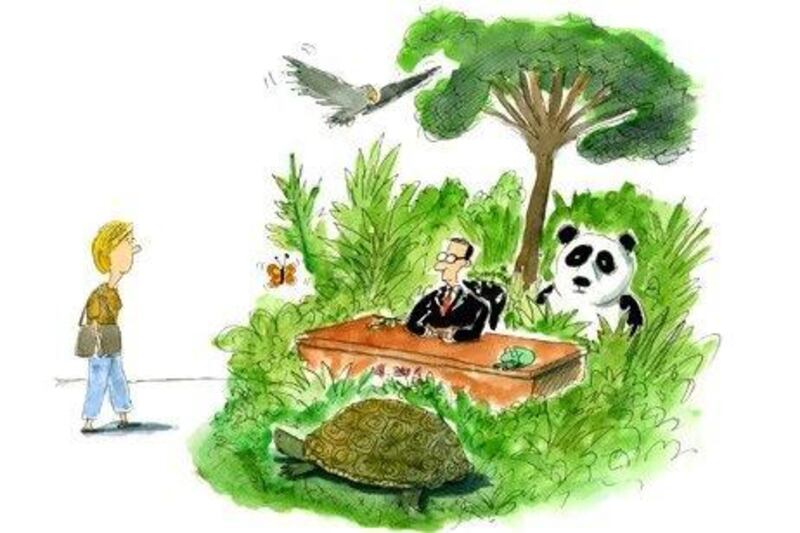Green is good and greed is out. Well, almost.
There are, of course, still quite a few greedy elements in the world today, none more so than the banks that are raking in even bigger bucks and profits despite being bailed out by taxpayers a couple of years ago.
Some would argue that it's not a terribly ethical strategy in this day and age, especially when you consider the fee gauging they've introduced to return to their legendary six-figure bonuses and to get rid of their embarrassingly high quota of toxic loans from that even more embarrassing period known the sub-prime debacle.
Which, as we all know now, was a major factor in kicking off the global financial crisis, causing many of us to lose our jobs, our homes, fall further into debt and work longer hours (if we'd managed to keep our jobs) with our salaries frozen, not to mention increasing the age of our retirement because many western governments can no longer afford for people to enjoy their golden years on time.
Not that we are bitter, but giving back to communities would have gone a long way in restoring a little of the goodwill that the banks lost during the crisis.
But if banks are failing to make an effort - or at least trying to make a good show of it - then the citizens of the world certainly are.
There's a new breed of investor that has emerged from the dark days of the credit crunch, one that has a conscience and is demanding a better choice of financial vehicles that will give them a return (of course), but also help to ease their guilt and make a difference to the world.
Whether this is investing in a company that has at its core a corporate social responsibility strategy that refuses to deal with cheap labour in third-world countries to firms that operate in environmentally friendly sectors or even diving into the Dow Jones Sustainability Index (DJSI), the green rush is on.
These investors are choosing to ignore the big industrials that operate on an "all-take-and-no-give" strategy. Instead, they are focusing on forward-thinking companies that may, for instance, focus on wind farms or socially responsible projects.
BP's Gulf of Mexico oil spill, in which the equivalent of 4 million barrels of crude spewed into the ocean, cost the oil giant dearly, not to mention its investors.
The company's share price plummeted from a high of US$655.40 (Dh2,400) on April 20 to a low of $302.90 on June 29 as the company battled to stem a comedy of errors by its top management team as well as struggle to cap the blowout, which killed 11 workers.
Then, on May 31 last year, BP was unceremoniously dumped from the DJSI, which tracks the financial performance of the leading sustainability-driven companies worldwide.
"The extent of the oil-spill catastrophe in the Gulf of Mexico and its foreseeable long-term effects on the environment and the local population - in addition to the economic effects and the long-term damage to the reputation of the company - were included in the analysis leading up to BP's removal," the DJSI's index design committee said of its decision at the time.
On Tuesday, BP shares were trading at $467.40 - still a far cry from its heyday before the oil spill.
On the flip side, investors who have jumped on the green bandwagon are being rewarded for their efforts.
According to research by MarketsandMarkets, a US-based market research and consulting company, the global renewable energy market, for example, is forecast to be worth US$614.92 billion (Dh2.2 trillion) by 2015 on the back of a compound annual growth rate of 7.5 per cent starting from 2010.
Meanwhile, the DJSI last year reported an annualised total return of 7.78 per cent since its inception in September 1999.
As the green revolution gains momentum, it seems that investors have grown tired of what they deem unethical corporate strategies.
Not all of these investors are throwbacks to the 1960s (although there are still a few about), when flower power ruled and tree-huggers were a dime a dozen. They come from all walks of life, from savvy Generation Y entrepreneurs to mum and dad investors and some of the world's richest men.
In the words of Warren Buffett, considered by many as the world's greatest investor: "You only have to do a very few things right in your life so long as you don't do too many things wrong."
Judging by the green revolution, it seems that many investors are taking this to heart.
To mark Earth Week, The National directs its focus on the environment with Green Issues, highlighting the need for education and attention to the needs of our planet.







